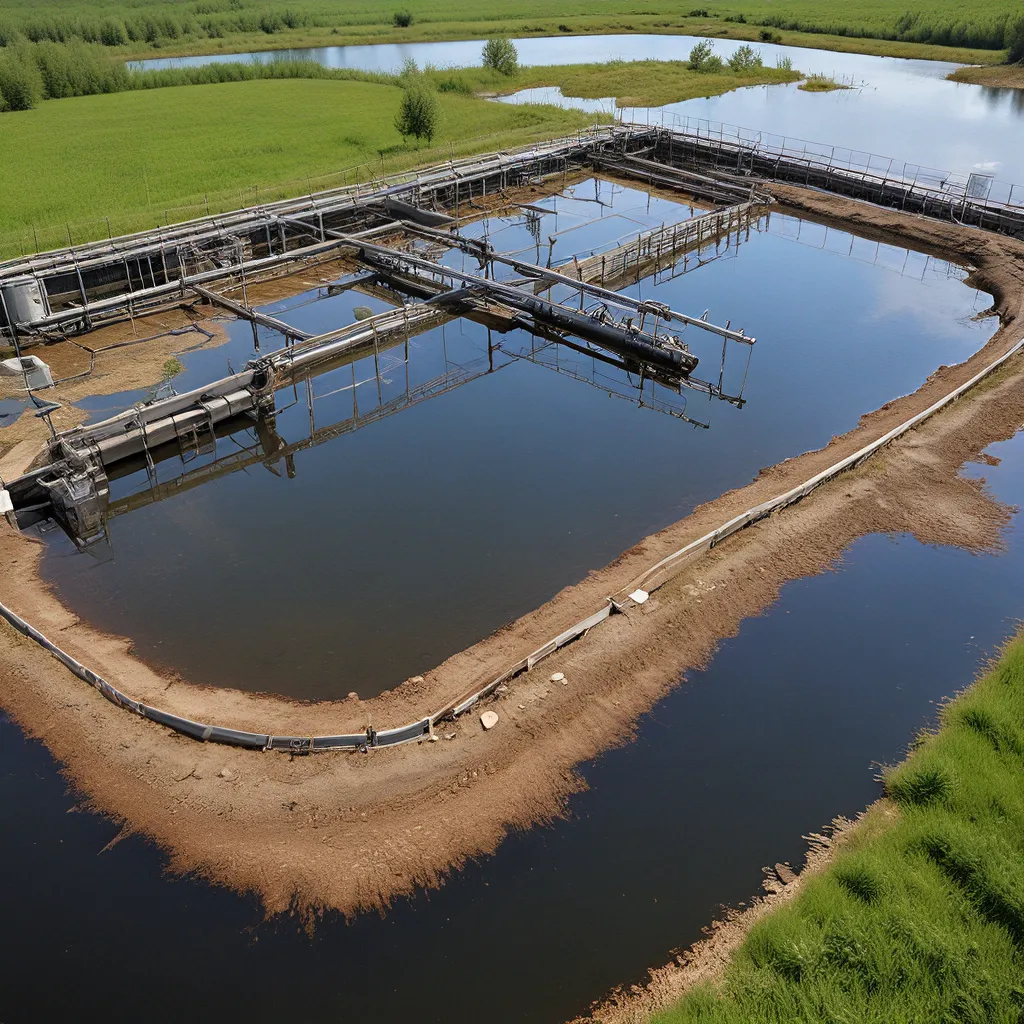
As an environmental enthusiast, I’ve always been fascinated by the incredible potential of wastewater treatment to not only clean our water but also contribute to the bioeconomy. It’s a topic that’s been on my mind for a while, and I can’t wait to share what I’ve learned with you.
The Wonders of Wastewater: From Dirty to Delightful
Let’s start with the basics. Wastewater treatment is the process of cleaning and purifying the water that flows down our drains, toilets, and sinks. It’s an essential part of maintaining a healthy environment and ensuring that our communities have access to clean, safe water. But what if I told you that wastewater treatment can do so much more?
Imagine a world where the dirty water we flush away could be transformed into valuable biofuels, powering our vehicles and homes. That’s the vision behind the bioeconomy – a sustainable, circular economy that harnesses the power of biological resources to create new products and energy sources.
Tapping into the Bioeconomy: The Role of Wastewater
So, how exactly does wastewater treatment fit into the bioeconomy? It all comes down to the microorganisms that do the heavy lifting in our water treatment plants. These amazing little critters are masters of anaerobic digestion, a process that breaks down organic matter and releases methane – a potent biofuel.
According to the U.S. government, the methane produced during wastewater treatment can be captured and used to generate renewable energy, reducing our reliance on fossil fuels and greenhouse gas emissions.
But that’s just the tip of the iceberg. Recent research has shown that we can take this process even further, using the biomass generated during wastewater treatment to produce a wide range of biobased products, from bioplastics to biofertilizers. It’s a circular economy in action, where waste becomes a valuable resource.
Unlocking the Potential: Innovative Wastewater Treatment Technologies
As exciting as this all sounds, you might be wondering, “How do we actually make this happen?” Well, the good news is that innovative technologies are already paving the way for the biobased future.
Researchers have been exploring new ways to optimize the anaerobic digestion process, improving efficiency, yield, and methane production. And that’s just the beginning – there’s a whole world of cutting-edge bioreactor designs, advanced sensor technologies, and data-driven optimization strategies waiting to be explored.
But it’s not just about the technology; it’s also about integrating these innovations into our wastewater treatment infrastructure. That’s where companies like Alpha Wastewater come in, helping communities and industries harness the power of the bioeconomy through tailored wastewater treatment solutions.
Embracing the Future: Opportunities and Challenges
As exciting as all of this sounds, I know there’s still a lot of work to be done. Transitioning to a more biobased economy isn’t going to be easy – there are technical hurdles to overcome, policy barriers to navigate, and cultural shifts to navigate.
But I believe that the potential rewards far outweigh the challenges. Just imagine the environmental and economic benefits of turning our wastewater into a valuable resource rather than just a problem to be solved. It’s a win-win situation, and one that I’m eager to be a part of.
Of course, there’s still a lot of ongoing research and debate around the best ways to harness the power of the bioeconomy through wastewater treatment. Some experts believe that we should focus on optimizing methane production, while others argue that biobased products hold the greatest promise. And I’m sure there are many other perspectives out there that I’ve yet to discover.
But one thing is clear: the future of wastewater treatment is bright, and it’s full of exciting possibilities. So, let’s keep exploring, experimenting, and pushing the boundaries of what’s possible. Who knows what amazing breakthroughs we might uncover along the way?